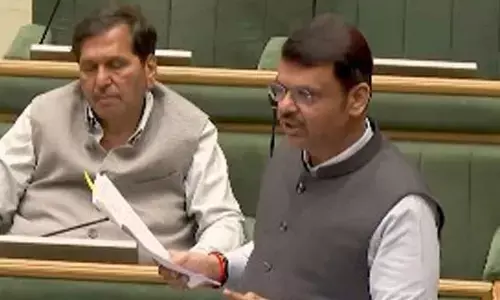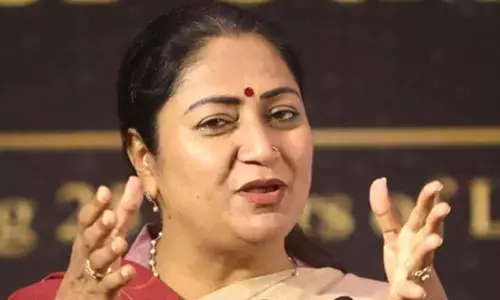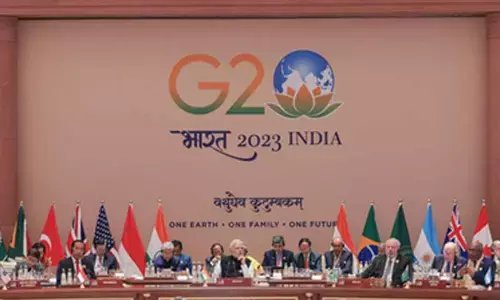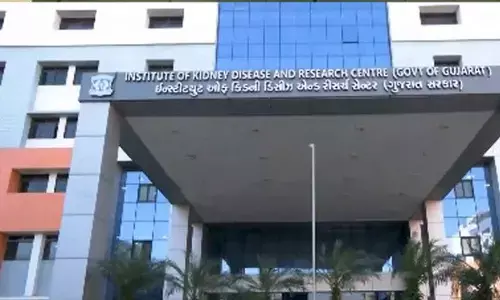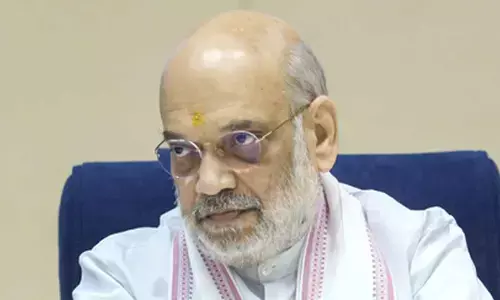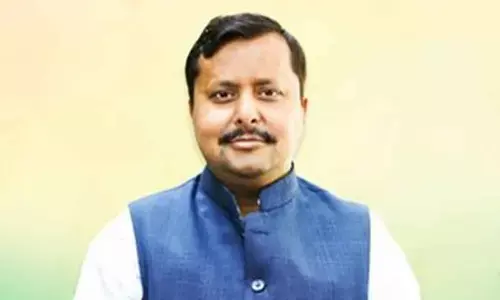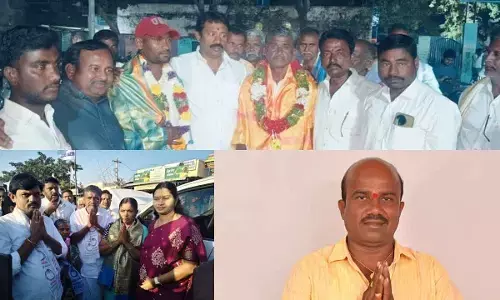Does Telangana have a lesson to teach?

Somewhere in heaven, Potti Sriramulu, the man who gave his life in order to get the then government concede Andhra State along strictly linguistic lines, must be shedding copious tears. Andhra Pra�desh is now being divided, and Sriramulu must be shocked to witness the anger and hatred that has accompanied the division of the largest State in South India. What that has shown is that language alone is not a unifying factor. Is religion then, what unites people? No. That has been shown to be a chimera. Pakistan is realising it. If Baluchistan and the North West Fron�tier Province had their way, there would be nothing left of the State with East Bengal long gone.
English is no more a foreign language and currently more Indians are familiar with English than any other country in the world, including the United States
 Somewhere in heaven, Potti Sriramulu, the man who gave his life in order to get the then government concede Andhra State along strictly linguistic lines, must be shedding copious tears. Andhra Pradesh is now being divided, and Sriramulu must be shocked to witness the anger and hatred that has accompanied the division of the largest State in South India. What that has shown is that language alone is not a unifying factor. Is religion then, what unites people? No. That has been shown to be a chimera. Pakistan is realising it. If Baluchistan and the North West Fron¬tier Province had their way, there would be nothing left of the State with East Bengal long gone.
Somewhere in heaven, Potti Sriramulu, the man who gave his life in order to get the then government concede Andhra State along strictly linguistic lines, must be shedding copious tears. Andhra Pradesh is now being divided, and Sriramulu must be shocked to witness the anger and hatred that has accompanied the division of the largest State in South India. What that has shown is that language alone is not a unifying factor. Is religion then, what unites people? No. That has been shown to be a chimera. Pakistan is realising it. If Baluchistan and the North West Fron¬tier Province had their way, there would be nothing left of the State with East Bengal long gone.
In many ways India is unique. An Indian diplomat once told me of a conversation he had had with a North African Arab leader who wanted to know how many languages were spoken in India. My friend said some 22 languages were officially recognised, but what was it that the Arab leader really wanted to know? The reply stunned my friend. The Arab told him: "You speak 22 languages but India is one. We speak one language but we are divided into 22 States”. That was a bit of an exaggeration but the point was well made.
Language is not necessarily a uniting factor, as was once firmly believed. Even little Ireland is divided into two States and the Irish are by no means a huge number. As for Telangana, the argument is that ’’cul¬turally” it is vastly different from the rest of Andhra Pradesh and cannot live comfortably with the largely coastal districts. Telangana is primarily the old Hyderabad State. It sounds ridiculous but apparently it is true and we might as well accept it. A time may come when the Lingayats of North Karnataka and the Gowdas of the south may similarly seek separation. How should we handle the situation then?
India has three options: Option One: Stand firm as of now and refuse any more demands for new States no matter what pressure is brought up by the demandees. Call for an all-party conference and come to a clear-cut and unified opinion.
Option Two: Set up a new States Reorganisation Commission and check out the acceptability of demands such as of the Gurkhas in Darjeeling and the voters in Vidarbha for separate States. We now have 29 States but it must be made clear that, once a decision is taken, it must be unchallengeable and accepted till eternity, and there would be no more break-ups.
Option Three: Change the Constitution. Go for a unitary State consisting of 500-odd districts, scrapping the very concept of Statehood. Go for a presidential form of government. This has several advantages. One is that it will quietly and efficiently quell linguistic chauvinism. Another is that it will end the era of aggressive regional satraps ruling the roost. A third is that a nationally elected President can appoint Cabinet colleagues across political barriers and will not have to constant¬ly look over his shoulders for coalition support. A presidential form of government will forever end coalition politics which is dragging the nation into the mud.
Every district will be practically under the direct eye of the Centre. A group of 20 to 30 districts, depending on cir-cumstances, will be in charge of a Governor appointed by the President and directly responsible to him. A district will be free to maintain its records in the local language but all inter-district and district correspon¬dence should be in English, the views of Rajnath Singh on the language issue notwithstanding. English is no more a foreign language and currently more Indians are familiar with English than any other country in the world, including the United States. But the most fruitful result of a presidential form of government will be the virtual elimination of corruption in the highest circles.
A nationally elected President can make use of the best talent in the country and anybody found not up to the mark can quietly be sent home. In this instance, we have much to learn from the United States. All this is not to say that a Presidential form of government or a unitary system of administration has no shortcomings. But considering what we have gone through in the last six decades plus, with diminishing quality returns, we have few options left.
What is important is that people seeking political power will have a limited sphere of activity: the district. Only someone of high standing, mentally, morally and even spiritually can aspire to be a presidential candidate.
An aspirant will realise that to be a presidential candidate he not only has to familiarise himself/herself with every part of the country and its people but be acquainted with as many local languages as possible, as well. This alone will make India strong. It can lead to the elimination of small parties of no consequence, along with casteism and other detestable features of politics noticeable today.
But do we have the courage to go for a new Constitution? As things stand, disintegration faces us at every moment. We don't have leaders of national standing; the duty of every political party now onwards is to build up national leadership of the highest order and not leave anything to chance. The only thing constant in life is change and one should have the courage to accept the challenges it throws up. The division of Andhra Pradesh should be an eye -opener. We have had enough of linguistic chauvinism. For making that so richly evident we have to thank the Telangana protagonists. India is greater than the sum of its parts, a point worth remembering.








